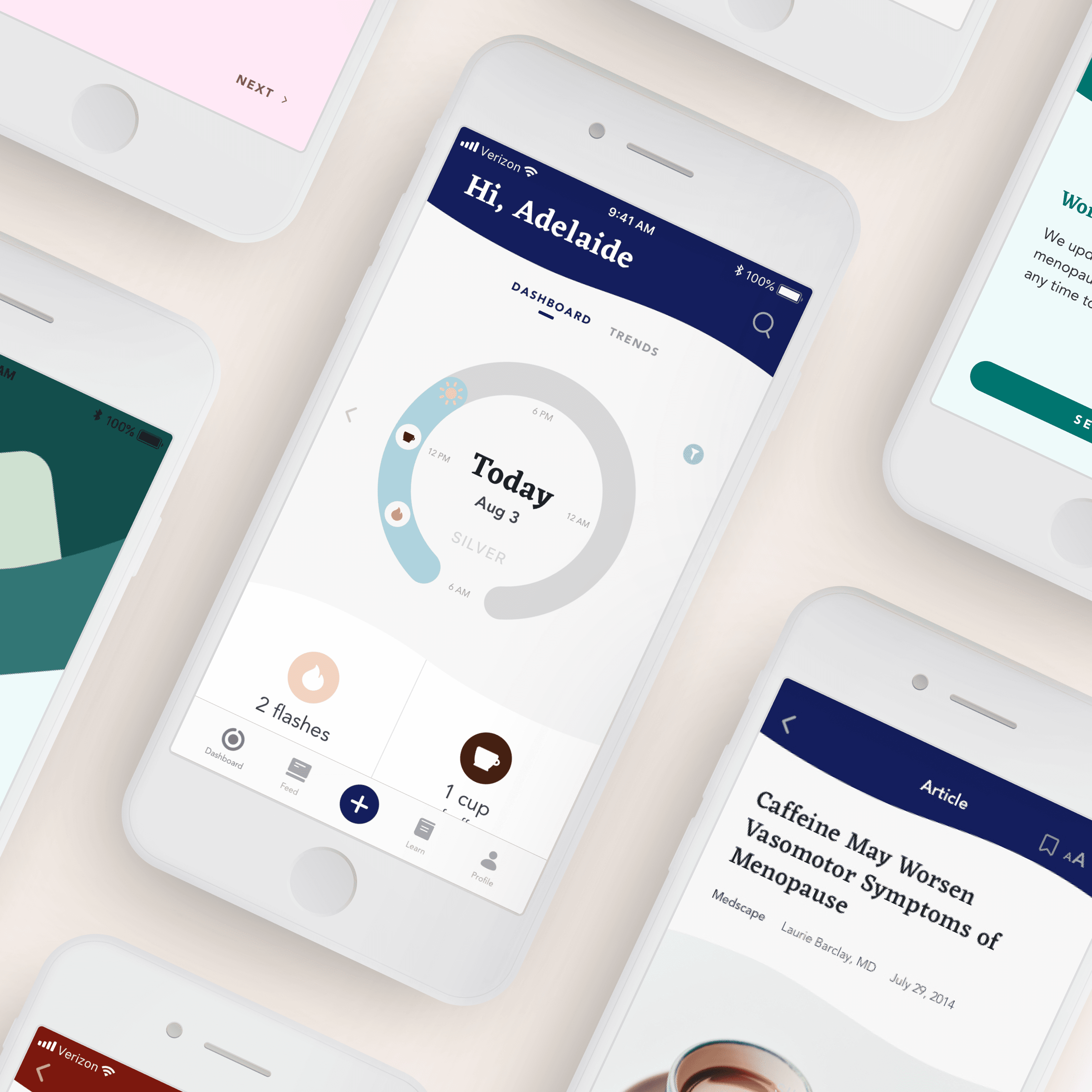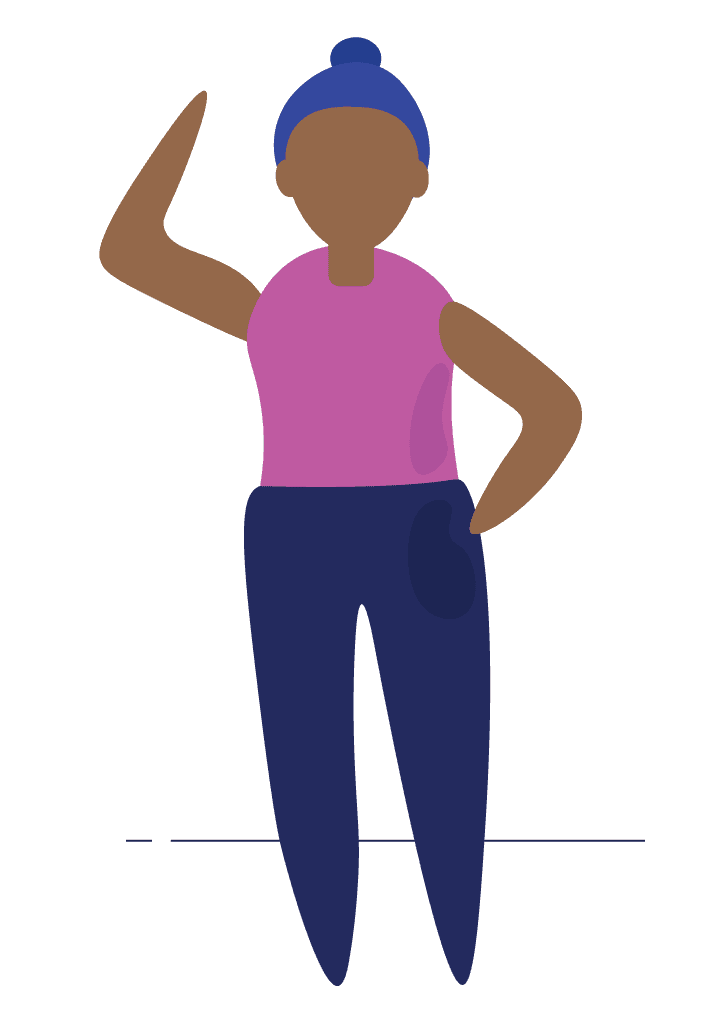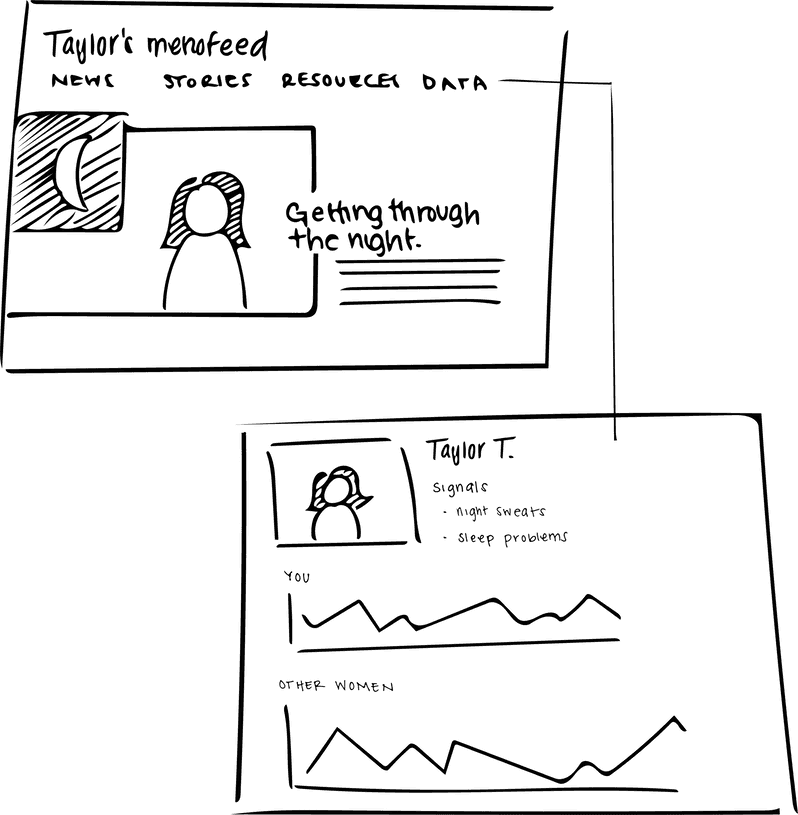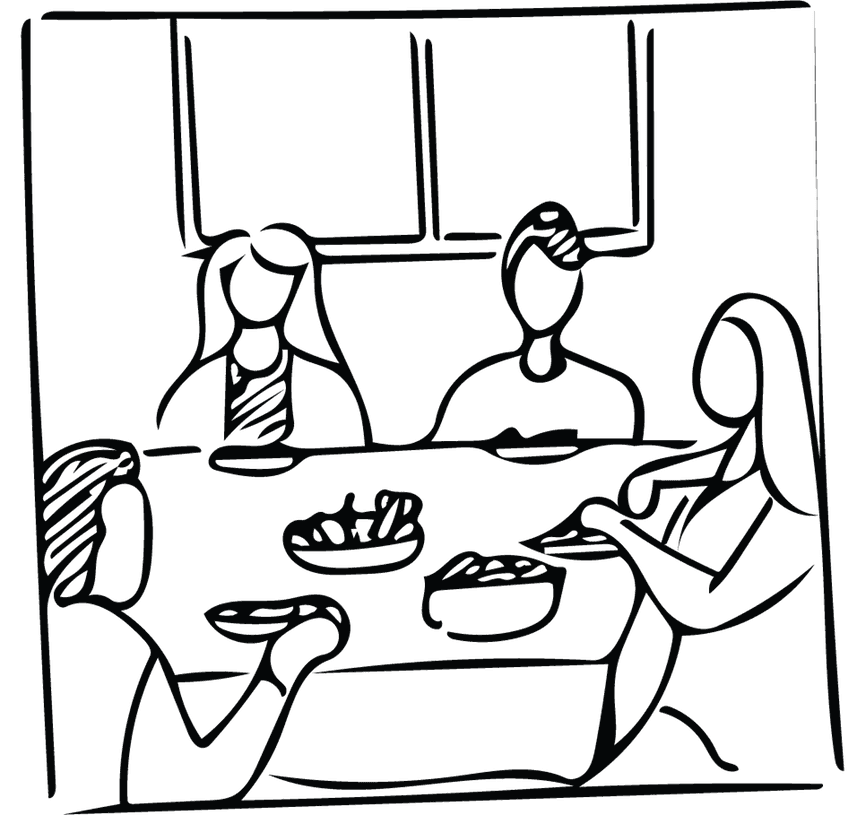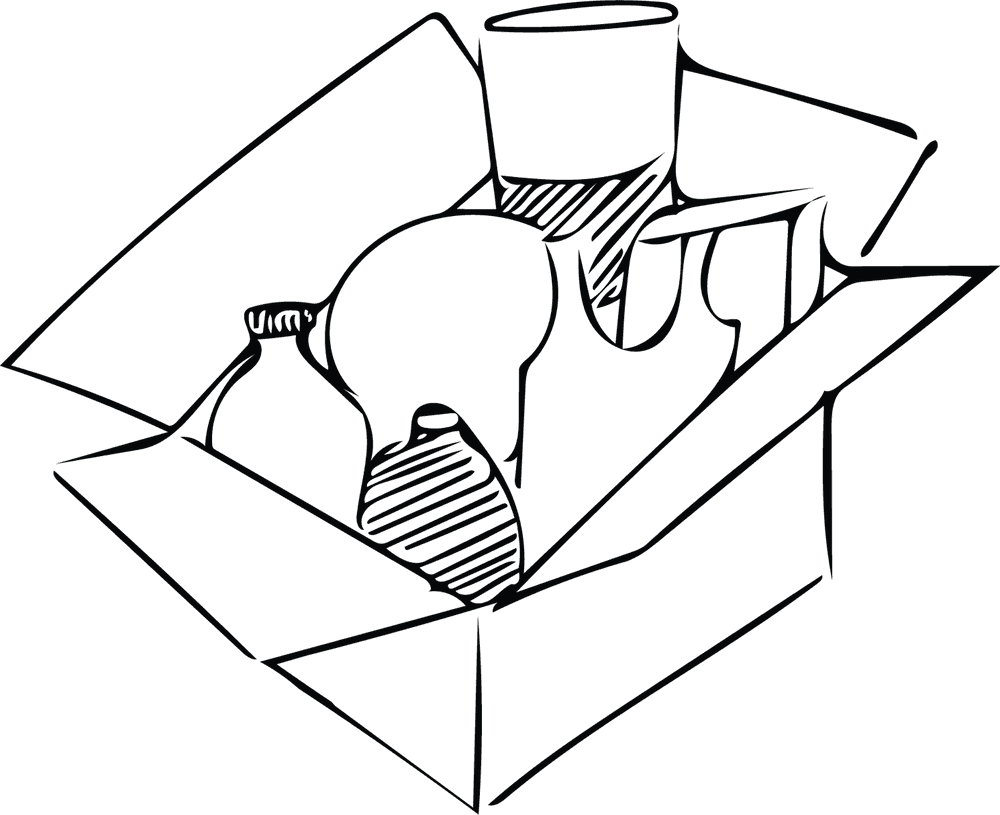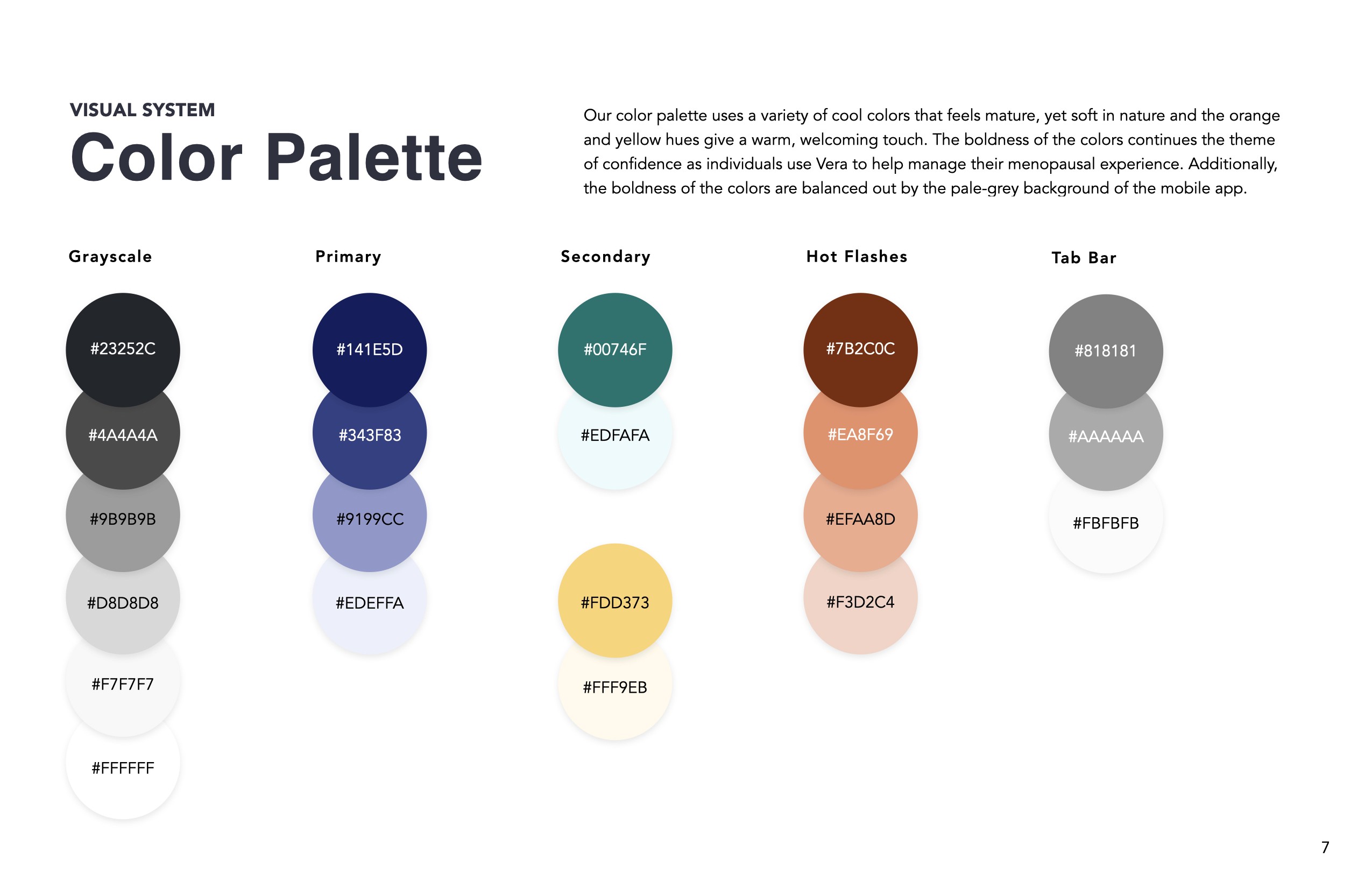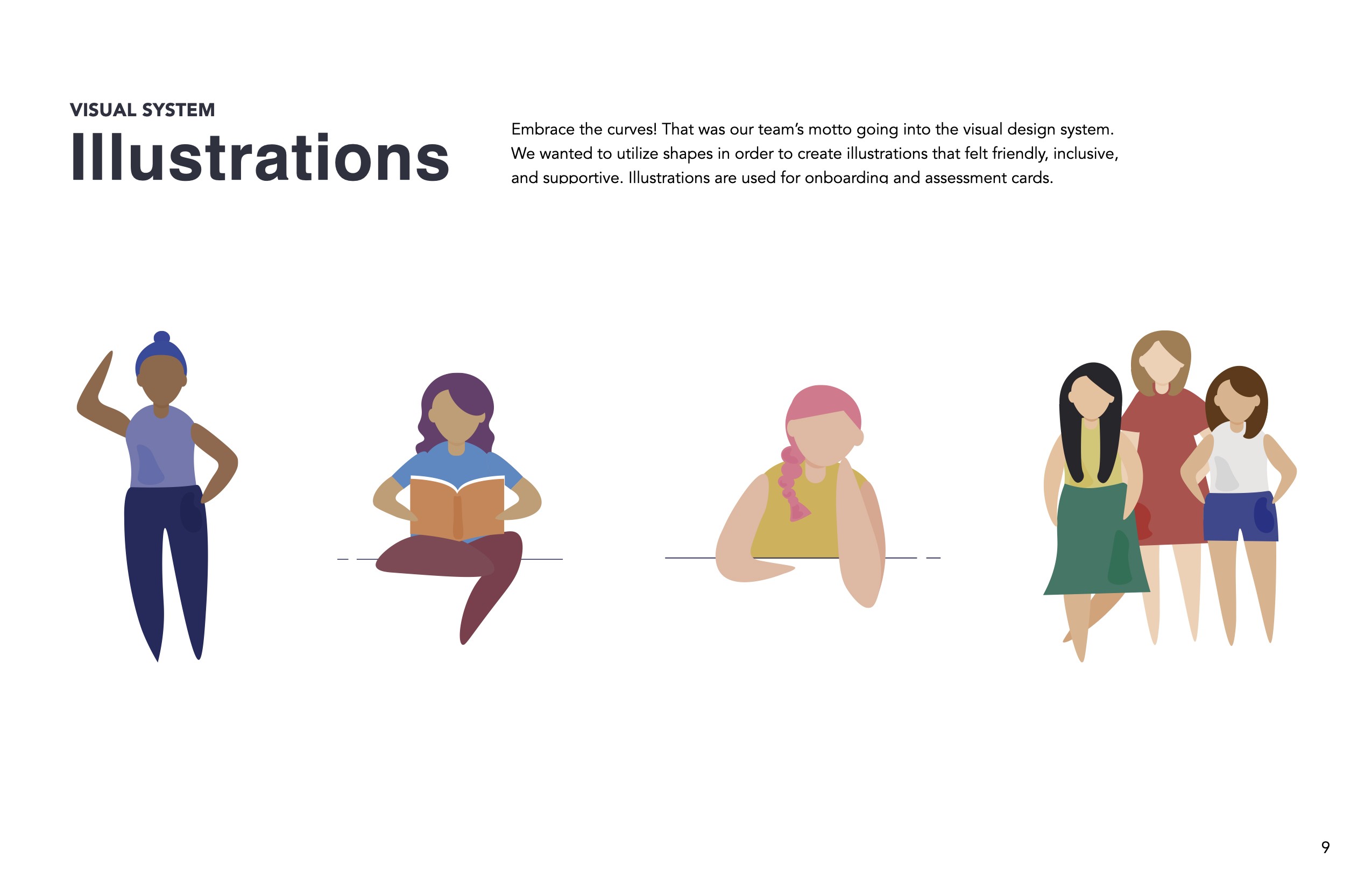Vera
Led user research to identify user needs and pain points in managing menopause
Created wireframes, prototypes, and high-fidelity designs for Vera's mobile app, ensuring a seamless and intuitive user experience
Developed Vera's design system and brand identity, ensuring consistency across all digital touch points
Conducted usability testing to gather feedback and iteratively improve Vera's design and functionality
My role
Introducing Vera
Menopause affects half of the world's population
It can cause hot flashes, insomnia, weight fluctuations, and other uncomfortable experiences, and these biological changes can last for up to ten years. Menopause also occurs at a time when people are experiencing life changes such as children moving out of their homes or loved ones requiring end-of-life care. Amidst all of these changes, menopause is frequently stereotyped, sensitive, and a taboo topic, which has rendered it relatively under-supported in today's society."
So what is menopause?
Menopause occurs when a person’s menstrual cycle has ceased for 12 consecutive months. It is a natural and normal transition that typically occurs in one's early 50s. However, like puberty, menopause is a natural transition that varies
among individuals.
Because we view menopause as a natural phase of life, we choose to use the term "signals" instead of "symptoms," as these changes are simply signals from the body that it is going through a natural transition.
01
Diversity of experiences
There are a variety of menopausal experiences because signals can be diverse in nature and severity.
02
Menopause research is often devalued
because it's often seen as a quality of life issue and is considered non-life threatening.
03
Stereotypes add to the stigma
In Western cultures, menopause is attributed to aging and loss of femininity, which can lead to stereotypes.
04
A positive mindset is key
When a person enters menopause in a physically and mentally healthy state, they can improve their menopause.
Menopause is multidimensional
We interviewed four subject matter experts from various fields to better understand menopause from different cultural, medical, and historical perspectives. From our conversations, we came around with four main takeaways.
Hearing firsthand experiences
We conducted semi-structured interviews with six people experiencing menopause to gain an understanding of their menopausal experience and how it has impacted their lives, including work, relationships, and self-image.
Collecting shared experiences
Building on the personal experiences we heard, we aimed to harness the collective mindset of menopausal people. To accomplish this, we conducted a participatory workshop with eight people.
A surprising observation
Before the workshop, we were uncertain about our target audience. We debated whether to focus on people with menopause, premenopausal individuals, or other secondary groups affected by menopause.
During the workshop's prioritization activity, we made an unexpected discovery. Although individuals desired relief from their menopausal signals, the collective group expressed a need for more support within the menopausal community. This realization led us to believe that there were greater design opportunities with people experiencing menopause since their signals directly and indirectly affected them.
However, we also acknowledge that our final design concept could have cascading effects on premenopausal individuals, those experiencing perimenopause, and their wider social circle, including partners, family members, and coworkers.
01
Unique experiences
Menopause is a unique experience for each person, making it difficult to identify a typical experience. Limited scientific research adds to the challenge of defining what is considered "normal."
02
People don't know what to expect
Due to a lack of clear expectations, people often feel uncertain about menopause, leading to frustration or isolation. This highlights the need for clarity around timelines and expected experiences.
03
Silently enduring menopause
Menopause is often viewed as a quality of life issue that aging individuals are expected to silently endure. There is a lack of interest in creating a broader discussion around it, despite the relief people feel from sharing their experiences.
04
Body literacy creates control
Body literacy empowers people to take control of their menopause. By understanding and attributing changes to this natural transition, they can manage their self-image, social responsibilities, and access resources and treatments.
Broadly ideating, and then narrowing down
After 10 weeks of iterative research, we took what we learned and sketched 100 concepts. We went as broadly as possible; from speculative designs such as a Google Map exploration of the body to the quirky idea of a meno-gotchi to more conventional concepts such as a heat-sensing wearable.
Concept testing in the wild
After narrowing down our concepts to four design directions that focused on community support, signals alleviation, and tailored resources within menopause, we conducted feedback sessions with five individuals at a local park.
Lifestyle website
Personalized lifestyle recommendations based on a menopause questionnaire
Smart cooling bra
Bra with cooling features and an app to visualize hot flash patterns
Social event
Website to host or attend menopause-related events
Subscription box
Paid service offering personalized products to ease menopausal symptoms
01
Existing support
There was a preference among all of our participants to talk to existing support systems rather than to strangers.
02
Relief from signals
The concept of a smart bra that can provide relief from hot flashes was particularly well-received by most people.
03
Coping strategies
Coping strategies and information on managing menopause signals were also highly sought after.
Vera: your personalized menopause companion
Building upon our learnings, we conceptualized Vera, a mobile app that curates personalized content tailored to each individual's unique menopause experience. Our user research uncovered the importance of actionable information as a coping strategy for most menopausal people. With Vera, our goal was to create a concept that provides personalized menopause information to empower users to take meaningful action. To refine our concept, we conducted additional testing with five participants.
During usability testing, we used a variety of screens, some of which are shown below:
Profile version 01
Profile version 02
Assessment version 02
Assessment version 01
01
Validating experiences
People appreciated community comparisons that helped validate their menopause experiences
02
Ability to scan
There was a strong preference for scannable data and content among all our users.
03
Sense of control
People were excited by the sense of control provided by data tracking
Creating Vera’s branding
In shaping Vera's brand identity, my primary focus was to align it with three key communication objectives: confidence, friendliness, and supportiveness. The journey through menopause can often be an unsettling experience, as it can feel like one's body is undergoing profound changes beyond their control. To address this, I meticulously infused these communication goals into both the voice and visual aesthetics of our mobile app. As a team, we strived to provide menopausal individuals with a source of assurance, companionship, and inclusive support during this phase of life.
Introducing Vera's features
Track signals or triggers
Track menopausal signals and other metrics to manage your biological changes and externalize what is happening to you.
Reflect through data visualizations
Explore data visualizations to review, compare, and predict your menopause timeline.
Engage with personalized content
Discover tips, articles, or facts that are relevant to your menopause experience through a personalized news feed.
Go beyond signals with assessments
Complete short questionnaires to capture your lifestyle and go beyond what can be tracked day-to-day.
Reflections
Designing for menopause has taught me the importance of designing for intimate spaces with inclusivity in mind. It's crucial to ensure that the language we use is clear and neutral to avoid unintentionally excluding people. Additionally, visual language should reflect the diversity of ethnicities, ages, abilities, and more.
To learn more about my thoughts and key takeaways on designing for menopause with an inclusive approach, please visit my Design Voices piece.
